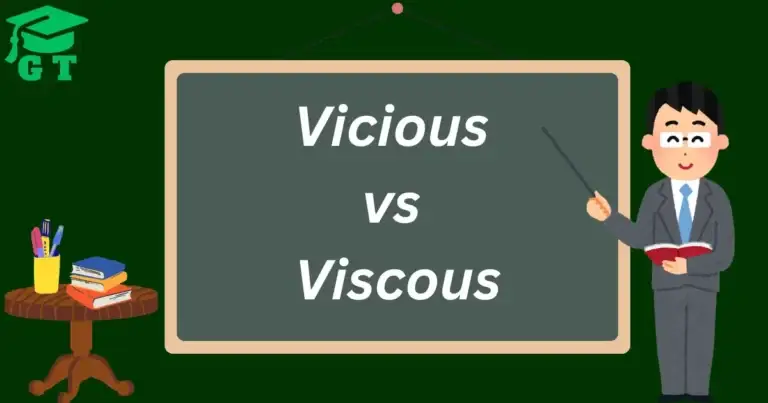Have you ever paused mid-sentence, fingers hovering over the keyboard, unsure whether to type “grateful” or “greatful”? It’s a common dilemma that plagues writers, students, and even casual texters alike. These two terms look and sound so similar that it’s easy to see why people mix them up. The confusion often leaves us second-guessing ourselves: Is it grateful or greatful? Don’t worry—you’re about to get the clarity you need. In this article, we’ll unravel the grateful vs greatful mystery by exploring their meanings, differences, and practical examples to ensure you never stumble over them again.
The truth is, only one of these is a real word, while the other is a sneaky impostor that sneaks into our writing. Whether you’re drafting a heartfelt thank-you note, posting a caption on social media, or polishing a professional email, using the correct term matters. We’ll dive into the definitions of grateful and greatful, trace their origins, highlight common mistakes, and even offer tips to help you choose the right one every time. By the end, you’ll not only understand the greatful or grateful debate but also feel confident applying this knowledge in your daily life. Let’s get started!
Grateful vs Greatful – What’s the Difference?

The grateful vs greatful mix-up is one of those spelling traps that catches even seasoned writers off guard. Here’s the breakdown:
- Grateful: The correct word, an adjective meaning to feel or express thankfulness and appreciation.
- Greatful: A widespread misspelling of “grateful” that doesn’t exist in standard English dictionaries.
So why does this confusion persist? It’s largely because “greatful” looks plausible—after all, it combines “great” (meaning impressive or large) with the suffix “-ful.” But don’t be fooled: “great” and “grateful” have entirely different roots and meanings. Let’s explore each term in detail to solidify the distinction.
What Is Grateful?
Definition: “Grateful” describes a state of being thankful or showing gratitude for something received—be it a kind gesture, a gift, or a fortunate event.
Usage in Sentences:
- “I’m grateful for the warm meal you made after a long day.”
- “He was grateful to escape the storm unscathed.”
- “She sent a note saying how grateful she was for the team’s hard work.”
Contextual Usage: You’ll find “grateful” everywhere—from casual chats (“I’m so grateful for coffee this morning!”) to formal correspondence (“We’re grateful for your generous donation”). It’s a go-to word in thank-you cards, speeches, and even mindfulness practices where people reflect on what they appreciate.
Etymology: “Grateful” comes from the Latin “gratus” (pleasing or thankful) and the suffix “-ful” (full of). It entered English in the 16th century, evolving from the older term “grate,” which meant pleasing. Unlike “great,” which derives from Old English “grēat” (big or coarse), “grateful” has always been tied to emotion rather than size.
Why It Matters: Using “grateful” correctly conveys sincerity and polish, especially in writing that aims to connect with readers emotionally.
What Is Greatful?
Definition: Spoiler alert—greatful isn’t a legitimate word! It’s simply a misspelling of “grateful” that pops up due to its phonetic similarity and visual resemblance.
Usage in Sentences: You won’t find “greatful” in dictionaries, but you might see it in errors like:
- “I’m so greatful for this chance” (should be “grateful”).
- “Feeling greatful after a tough week” (again, incorrect).
Contextual Usage: When “greatful” appears, it’s typically in informal settings—think hasty text messages, social media posts, or unedited drafts. People mean “grateful” but accidentally swap in an “ea” from “great.” It’s not industry-specific or intentional; it’s just a slip-up.
Why It’s Wrong: English doesn’t recognize “greatful” as a standalone term. While “great” is a valid word, tacking on “-ful” doesn’t create a new meaning—it just muddies the waters.
Read More: Analogy vs Simile: Unlock the Secret to Better Writing
Key Differences Between Grateful and Greatful

Here’s a side-by-side comparison to hammer home the grateful or greatful distinction:
| Aspect | Grateful | Greatful |
| Definition | Feeling or showing thankfulness | Not a real word; a misspelling |
| Common Usage | “I’m grateful for your kindness” | Incorrectly used for “grateful” |
| Context | Formal letters, casual talks | Typos in casual writing |
| Grammar Role | Adjective | N/A |
| Common Mistakes | Misspelled as “greatful” | Used instead of “grateful” |
This table highlights a key takeaway: grateful is the only option with a defined role in English.
Example Scenarios to Illustrate the Difference
Let’s bring this to life with some relatable examples:
- Scenario 1 – Personal Gratitude: Your neighbor shovels your snowy driveway. You say, “I’m grateful for your help—it saved me hours!” Writing “greatful” here would undermine your thoughtful message.
- Scenario 2 – Professional Context: After a successful project, you email your boss: “I’m grateful for the opportunity to lead this team.” Using “greatful” could make you look careless in a professional setting.
- Scenario 3 – Social Media Slip: Someone tweets, “So greatful for my new job!” While followers get the gist, the typo sticks out to grammar buffs.
These scenarios show how context shapes perception—grateful fits everywhere, while “greatful” just confuses things.
Why Do People Confuse Grateful and Greatful?
The greatful or grateful mix-up isn’t random—it’s rooted in a few linguistic quirks:
- Spelling Similarity: The difference is a single letter (“e” vs. “ea”), making it an easy typo.
- Pronunciation: Both are pronounced /ˈɡreɪt.fəl/, so your ear won’t catch the error when speaking.
- The “Great” Trap: “Great” is a familiar word, and people subconsciously blend it with “-ful,” assuming “greatful” means “full of greatness.” (It doesn’t!)
- Lack of Awareness: Many don’t realize “greatful” isn’t valid, especially if autocorrect doesn’t flag it.
Historically, English spelling wasn’t standardized until the 18th century, so misspellings like this were more common in older texts. Today, though, dictionaries are clear: grateful reigns supreme.
Synonyms & Antonyms
Boost your vocabulary with these related terms:
| Word | Synonyms | Antonyms |
| Grateful | Thankful, appreciative, glad, obliged, indebted | Ungrateful, unappreciative, thankless, resentful |
| Greatful | N/A (misspelling) | N/A |
Need a substitute for grateful? “Thankful” works in most cases, while “appreciative” adds a touch of formality. Avoid “greatful” entirely—it’s a dead-end.
Which One Should You Use? (Practical Tips for Writers)
When it comes to grateful vs greatful, the choice is straightforward: stick with grateful. Here’s how to nail it every time:
- Memory Trick: Picture “grate” (like a cheese grater) + “-ful” = full of thanks. “Greatful” has no such logic.
- Rule of Thumb: If you’re expressing gratitude, it’s grateful. Period.
- Proofreading Hack: Run a quick search for “greatful” in your document—if it shows up, fix it!
- Context Check: In formal writing (resumes, essays), “greatful” screams amateur. In casual texts, it’s still wrong but less glaring.
For writers, mastering this distinction boosts credibility. Imagine a blog post riddled with “greatful”—readers might question your attention to detail. Stick with grateful and you’re golden.
Read More: Plural of Syllabus: Syllabi or Syllabuses? Easy Guide
Final Thoughts
Let’s recap the grateful vs greatful showdown: “Grateful” is the real deal—an adjective for thankfulness—while “greatful” is a phantom word born from typos and wishful thinking. We’ve covered definitions, origins, examples, and tricks to keep them straight. Whether you’re thanking a friend, emailing a colleague, or journaling about life’s blessings, grateful is your go-to. Using it correctly shows you care about your words—and that’s something worth appreciating.
Why does this matter? Clear communication builds trust, whether you’re writing for fun or a paycheck. So, next time you’re tempted to type “greatful,” pause and remember: gratitude is spelled G-R-A-T-E-F-U-L. What’s your favorite way to express thanks? Drop it in the comments or share this guide with someone who’s still wrestling with the greatful or grateful puzzle!




